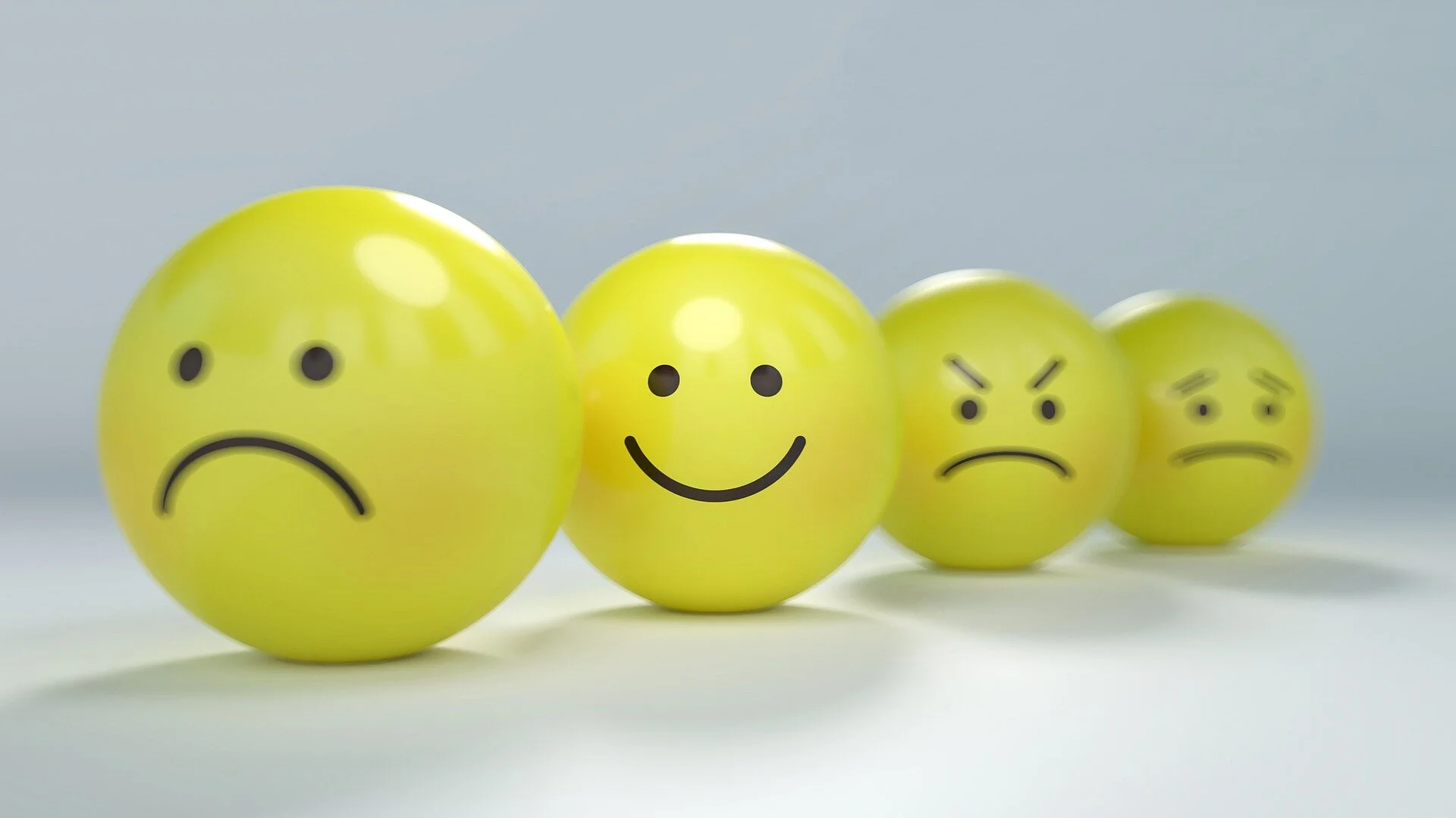Image by Gino Crescoli, Pixabay
Are Negative Emotions Ever a Good Thing?
Why would anyone want to feel sad? anxious? angry? hopeless?
Most of us are used to thinking of these emotions as bad. Something to be gotten rid of. A sign that something is wrong with them.
feeling bad about feeling bad creates a cycle
I often see people get caught in a cycle of feeling bad that goes something like this: "Feeling bad means there's something wrong with me. It's not okay to have something wrong with me, so I also feel bad about the fact that something is wrong with me. I can't feel better until I know there's nothing wrong with me, but feeling bad is a sign there's something wrong with me."
Can you see how this cycle would lead to feeling stuck?
As a TEAM-CBT therapist, my approach turns this whole idea on its head to break the cycle by asking,
seeing the good in all emotions
"What if experiencing these emotions was really a sign that something is right with you?"
How could that be?
Let's use current events as an example. There's a global pandemic. Unemployment is high. There's civil unrest and political tension. People are losing their jobs and their lives. A lot of people are feeling bad lately. In fact, one third of Americans were reporting signs of clinical depression or anxiety in the beginning of June (much higher than before the pandemic), and I wouldn't be surprised if that number was even higher now.
Would it be fair to say this is a sign there is suddenly something wrong with one third of Americans?
I hope your answer is, "No!"
So what good things does it show about people who feel anxious or depressed, or even angry, about what's going on?
an expression of your values
These emotions may show that:
They care about others and feel compassion for their losses
They feel things deeply
They have a passion for life and miss being able to do things they're passionate about
They don't like what's happening and don't want to accept these things as being okay
They have a strong sense of right and wrong
They're being honest about the fact that there is a problem--not pretending everything is okay
They want to be prepared to protect themselves or others--not get caught off-guard
What other good things might these, or other painful emotions, show? Another way to ask this is, "Would you really want to feel happy about this situation just as it is (or expect others to feel happy about it)? Why not?"
how you think about things matters
What we tell ourselves is happening in a situation, or our thoughts about it, has a huge impact on how we feel. In fact, many mental health experts would argue that it is our thoughts about a situation, not the events themselves, that cause negative feelings.
These thoughts are often exaggerated in a way that leads us to feel worse about a situation than is necessary or helpful. But, just as our painful emotions can show something good about us, so can the thoughts that drive them.
For example, sticking with current events, some people may be thinking, "I shouldn't feel so upset, other people have it way worse!" This shows consideration for others, a level of gratitude for what they do have, and high standards for themselves.
Similarly, thinking, "I should be doing more," shows high standards and a level of confidence in your ability.
Thinking, "The world is over," shows a desire to be prepared for whatever might be coming and a willingness to acknowledge problems.
If you've lost your job and think, "I won't be able to take care of myself or my family," it shows a desire to be responsible and self-sufficient, to be a good provider or caretaker, and love for your family.
This is only a small sampling of thoughts and feelings that some people are experiencing right now.
Now, you might be thinking, "Of course people are feeling bad right now! The world is falling apart!"
While it may be easy to see why someone might have such negative thoughts and feelings under extreme circumstances, you may be surprised to find that there's a good side to negative thoughts and painful emotions in "normal" situations as well. It can be helpful to make a list of all the emotions you're having and the associated thoughts, and then list out all the good things these thoughts and feelings say about you and ways they may even be helping you.
For some people, this shift in thinking is easy to make, while others find it very challenging. We're so used to thinking that feeling bad is bad, means something bad, and should be stopped as soon as possible, that the idea it could be helpful or show something truly good about us can be hard to wrap our brains around. If you're finding this exercise challenging, you're not alone! It may be worth considering reaching out to a professional to help.
Being able to see the good in these emotions is often a turning point in my work with people. Once you can see these emotions as an expression of your value system and your brain's way of trying to protect or prepare you, when you can start to feel good about feeling bad, it paves the way for truly starting to feel better!
For more information about the areas I work with most, check out my home page.


